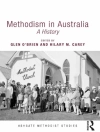This book provides a comprehensive overview of personal construct psychology (PCP) that will help researchers understand the why′s, what′s and how′s of conducting a rigorous constructivist research project.
From the theoretical underpinnings of constructivist approaches to the practical values of these techniques, these three expert authors explain how to conduct interpretative, constructivist research from inception to completion. Key topics include:
- Understanding research philosophies and paradigms
- Constructing and exploring personal realities
- Establishing effective research procedures
- Evaluating grids, mapping, narrative and other research methods
- Managing the practicalities of fieldwork
- Analysing and presenting data
With activities and procedural examples from a wide range of disciplines woven throughout the text and two special chapters featuring in-depth case studies from a variety of constructivist researchers, this book helps readers grasp the tools, designs, and opportunities of interpretative research.
An essential companion for both researchers and practitioners looking to understand people’s values, attitudes, beliefs, perceptions, or motivations!
Table of Content
Part I: Making decisions based on philosophy, theory and project purpose
Chapter 1: Introduction and orientation to constructivist research
Chapter 2: Understanding the nature of constructivist approaches
Chapter 3: Linking philosophy and theory to research purpose
Chapter 4: Constructing personal realities
Part II: Practicalities of Engaging in Constructivist Research
Chapter 5: Exploring personal realities
Chapter 6: Setting the climate for effective research encounters
Chapter 7: An evaluation of a range of potential research techniques
Chapter 8: An evaluation of a range of potential research designs
Chapter 9: Realities and practicalities in managing fieldwork
Chapter 10: Data analysis, meaning interpretation and management/presentation issues
Part III: How others have used PCP – sample research cases
Chapter 11: Cases using different designs
Chapter 12: Constructive alternatives, psychic mirrors and narrative turns: reflections on a lifetime as a personal construct researcher
About the author
Kim Bradley-Cole is a Chartered Psychologist and an Associate Fellow of the British Psychological Society. She has a Ph D in Leadership and Organisational Behaviour from University of Reading, and an MSc in Occupational and Organisational Psychology from University of Surrey. Kim retrained as a psychologist after a successful career in FMCG marketing and innovations, working on developing some of Britain’s best loved brands, including Heinz, Bisto, Mr Kipling and Twinings. She has held marketing and HR roles in large organisations, as well as working agency side in market research and as a freelance work psychologist and coach. She actively uses constructivist methods in both academic and practitioner contexts and has taught MSc and Ph D students how to effectively develop, apply and analyse different tools in their own research. Her Ph D was funded by the Economic and Social Research Council (ESRC) and used constructivist techniques to bring greater clarity and depth to an important, but contested, theoretical field by exploring managers implicit beliefs of authentic leadership. Kim is currently Director of Undergraduate Studies in Psychology at University of Surrey, where she teaches organisational psychology and qualitative research methods.












